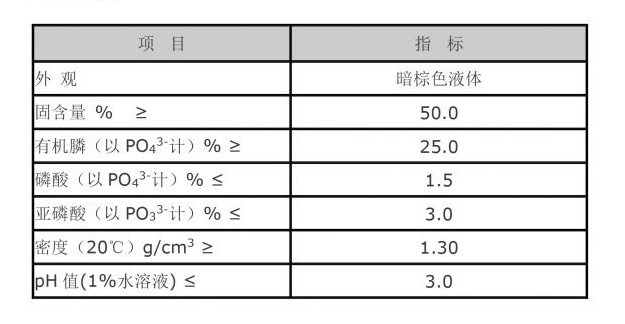cooling tower scale inhibitor
Understanding Cooling Tower Scale Inhibitors
Cooling towers play a pivotal role in industrial processes and commercial buildings by regulating temperature and improving energy efficiency. However, the operation of these systems can be compromised by the formation of scale, which is primarily caused by the precipitation of minerals found in water. Scale buildup can lead to reduced heat exchange efficiency, increased energy consumption, and costly maintenance. To combat this issue, cooling tower scale inhibitors have become essential additives in water treatment programs.
Scale inhibitors are chemical compounds designed to prevent the formation of scale deposits on heat exchange surfaces and other components within cooling systems. These inhibitors work by disrupting the crystallization process of minerals, making it more challenging for them to aggregate and form solid deposits. By sequestering hard scale-forming ions, such as calcium and magnesium, they keep these minerals in solution, thus preventing the settlement of scale.
There are various types of scale inhibitors available, including phosphonates, polyacrylates, and organophosphorus compounds. Each type has its unique mechanism of action and effectiveness against different types of scale. For instance, phosphonates are particularly effective in controlling calcium and magnesium scales, while polyacrylates can help reduce the deposition of organic materials and biofouling, which can also contribute to scaling.
cooling tower scale inhibitor

The selection of a suitable scale inhibitor is crucial and depends on several factors, including the water chemistry, system design, and specific operational conditions of the cooling tower. Regular monitoring of water quality is necessary to identify any changes in conditions that may require an adjustment to the treatment program. Additionally, the use of scale inhibitors often requires integration with other water treatment strategies, such as biocides for microbial control and corrosion inhibitors to protect metal surfaces.
In recent years, there has been a shift towards environmentally friendly and biodegradable scale inhibitors, driven by increasing regulatory scrutiny and the demand for sustainable practices. These new formulations aim to minimize the ecological impact while maintaining effective scale control.
In summary, the use of cooling tower scale inhibitors is an essential component of an effective water treatment strategy. By preventing scale formation, these chemicals not only enhance the operational efficiency and longevity of cooling systems but also contribute to overall energy savings and sustainability goals. As industries continue to prioritize performance and environmental responsibility, the development and application of innovative scale inhibitors will remain at the forefront of cooling tower management practices.
-
Water Treatment with Flocculant Water TreatmentNewsJun.12,2025
-
Polymaleic AnhydrideNewsJun.12,2025
-
Polyaspartic AcidNewsJun.12,2025
-
Enhance Industrial Processes with IsothiazolinonesNewsJun.12,2025
-
Enhance Industrial Processes with PBTCA SolutionsNewsJun.12,2025
-
Dodecyldimethylbenzylammonium Chloride SolutionsNewsJun.12,2025





